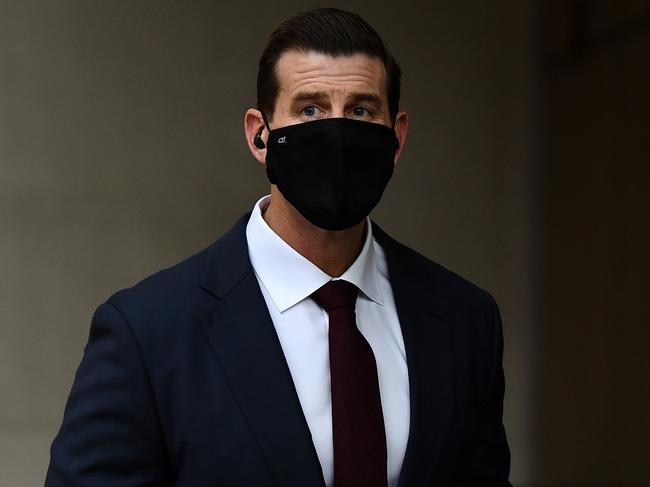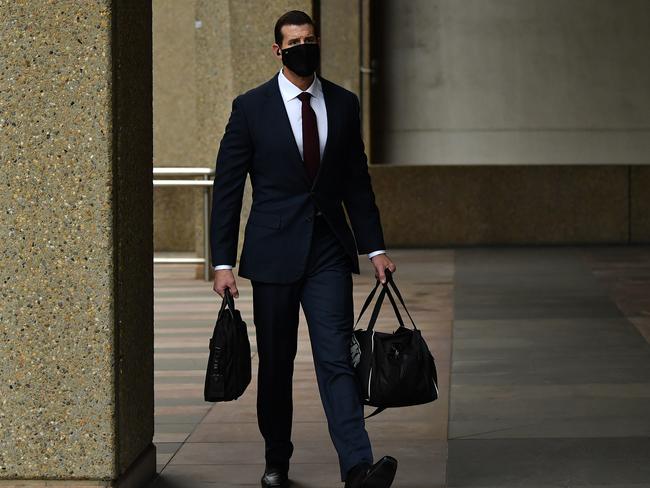Ben Roberts-Smith believed Taliban conversation was a ‘stitch up’: court
Victoria Cross recipient Ben Roberts-Smith has told a court he believed a conversation he had with a former SAS soldier about the shooting of a Taliban insurgent was being taped.
Police & Courts
Don't miss out on the headlines from Police & Courts. Followed categories will be added to My News.
Ben Roberts-Smith believed a conversation he had with a former SAS soldier about the machine gunning of a Taliban insurgent was being taped and a “total stitch up”, a court heard.
The Victoria Cross winner was being quizzed by barrister Nicholas Owens in his defamation hearing against Nine and three of its journalists in the Federal Court today.
Mr Owens said that the former soldier identified as Person 14 “told you that he saw you machine gun the man with the prosthetic leg” at a compound known as Whisky 108.
“I was shocked he brought that up,” Mr Roberts-Smith said. “He didn’t see the engagement.”
Mr Roberts-Smith has denied allegations the Afghan man was unarmed and shot multiple times instead saying he was carrying a bolt action rifle and shot twice.
He said Person 14 had been on the other side of the compound when the shooting happened. He denied threatening Person 14 during the meeting in a cafe years later and said: “I thoroughly believe he was recording me because the whole thing was a total stitch up.”

Mr Owens suggested Mr Roberts-Smith had put Australia’s security at risk by keeping a number of USBs that were sent anonymously to him containing photographs and classified drone footage of Whisky 108.
Mr Roberts-Smith said the images and footage were of a compound in Afghanistan. “I was being attacked by journalists who had access to exactly the same stuff,” he said. “To suggest it was putting our national security in jeopardy is false.
“I had no intention of doing anything with them other than to show my lawyers what was going on,” he said. And he again denied burying them in his back garden.
Mr Owens also alleged that the highly decorated soldier had wiped his computer with a special application “for the purpose of concealing what was on the hard drive.”
Mr Roberts-Smith said the USBs had already been copied and that he did not believe there was an issue over the material because “they were taken by my ex-wife and provided to the respondents.”
Mr Roberts-Smith also denied that meeting with members of his former unit while on holiday in New Zealand and the United States was to discuss his interview with the Inspector General of the Australian Defence Force.

Mr Owens said it was “implausible” to argue a letter sent to Mr Roberts-Smith by his former patrol commander about his own interview with the Inspector General was not in breach of security rules.
“We are friends and he was upset and probably wanted my view on it,” said Mr Roberts-Smith, who viewed the letter as a complaint and forwarded it on to his lawyers.
Mr Roberts-Smith said his own interview with the Inspector General was “basically one of the most traumatic experiences I have ever had.”





